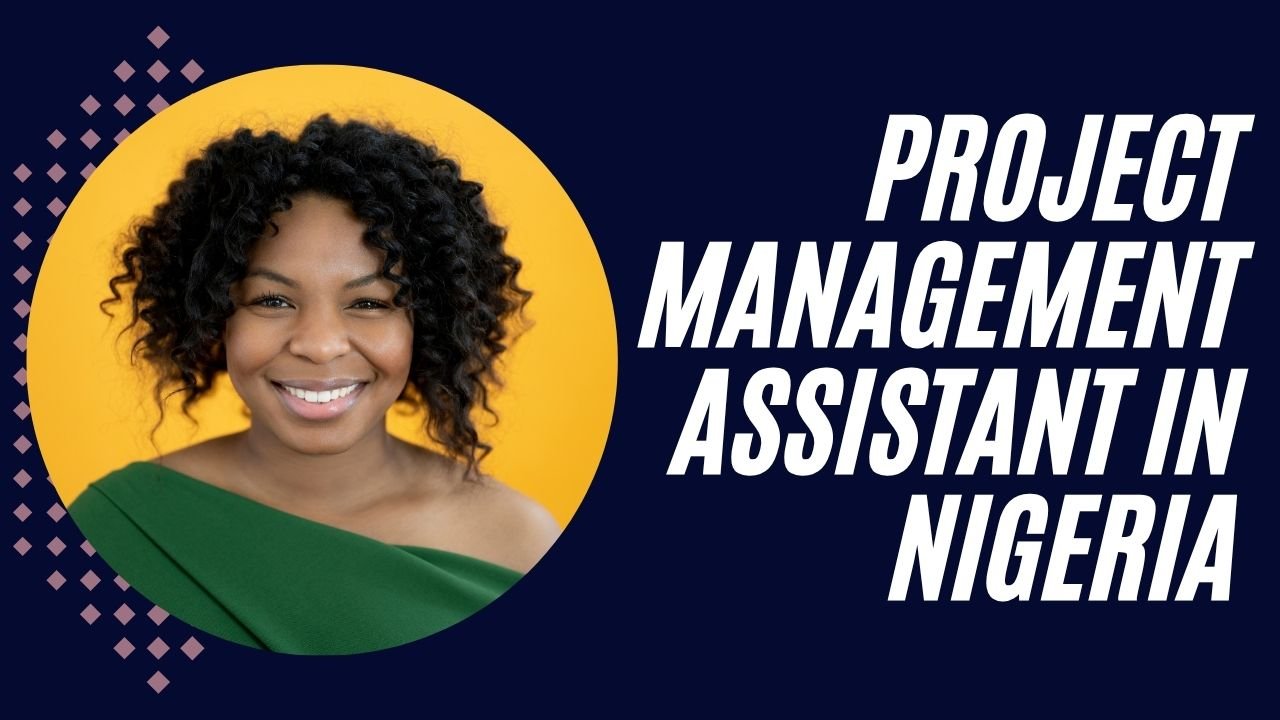Fill The Application
Picture this: you’re part of a fast-growing team working on a project that could change your city, your state—or even your country. But behind the scenes, there’s someone who keeps everything ticking like a well-wound clock. That’s the Project Management Assistant. In Nigeria, where businesses and development projects are booming, this role is more important than ever.
The Project Management Assistant (PMA) isn’t just another office job. It’s a position that blends organization, communication, and hustle—three things Nigerians naturally excel at. Whether you’re in Lagos, Abuja, or Port Harcourt, companies are on the lookout for sharp-minded, reliable individuals who can help deliver projects on time and within budget.
If you’ve been wondering whether this career path is right for you or how to start, you’re in the right place. Let’s break it down and talk like we would over a chilled bottle of Maltina.
Understanding the Role: What Does a Project Management Assistant Really Do?
A Project Management Assistant is the silent force behind a project manager’s success. Think of them like the rhythm section in a band—they may not be in the spotlight, but they keep the whole show on beat.
You’ll be expected to handle a lot of moving parts: from updating schedules and coordinating meetings to following up with vendors and creating reports. But it’s more than just task-juggling. You’re helping to steer the ship, especially when the seas get rough.
Here’s what you might be doing on a typical day:
-
Preparing and tracking project timelines
-
Organizing meetings and writing reports
-
Coordinating between departments and external clients
-
Monitoring budgets and expense records
-
Communicating project progress to stakeholders
In Nigeria, where project delays are common due to logistics and inconsistent infrastructure, having a dependable PMA is like having a good spare tire—essential.
Why Nigeria Needs More Project Management Assistants
The Nigerian job market is changing fast. With growth in sectors like tech, construction, oil & gas, and even non-profits, the need for skilled project professionals is rising. But not every company can afford a full project team. That’s where PMAs step in.
In many Nigerian firms, the Project Management Assistant is often the link between strategy and execution. They take the broad vision from a project manager and break it into workable steps. In this way, they help projects avoid becoming just another “Nigerian time” story.
More and more, companies in Nigeria are realizing that time is money. Missed deadlines cost millions. So they’re turning to PMAs to help reduce delays, improve communication, and make teams more accountable.
Here’s why this job is gaining popularity:
-
Increased demand for well-executed projects
-
High value placed on time and budget management
-
More businesses adopting structured project frameworks (Agile, Scrum, PRINCE2)
-
Growth in youth-focused industries like tech and digital marketing
The Skills You Need: Are You Cut Out for This Role?
This isn’t a job where you just sit behind a desk and push paper. To thrive as a Project Management Assistant, you need a mix of soft and hard skills. And truthfully, many of these skills can be learned or polished on the job.
Here’s what Nigerian employers often look for:
| Skill Category | Examples |
|---|---|
| Organizational Skills | Scheduling, task prioritization, document control |
| Communication Skills | Writing clear reports, following up, meeting notes |
| Tech Skills | MS Office, Trello, Asana, Google Workspace |
| People Skills | Team coordination, negotiation, listening |
| Problem-solving Skills | Anticipating issues, offering solutions |
These aren’t just buzzwords. In Nigeria’s often-chaotic project environments, these abilities help you stay calm and resourceful—even when NEPA takes light during an important Zoom meeting.
Education and Certification: Do You Need a Degree?
You don’t necessarily need a Master’s degree to become a great PMA. But most Nigerian companies prefer candidates with at least a Bachelor’s degree—often in Business Administration, Project Management, or any related field.
That said, certifications can take you a long way. For those wanting a competitive edge, consider these:
-
CAPM (Certified Associate in Project Management) – Ideal for entry-level roles
-
PRINCE2 Foundation – Recognized internationally
-
PMP (Project Management Professional) – Advanced but powerful
-
Diploma in Project Management (from local training institutes or online platforms like Coursera and Alison)
These show employers you’re serious—and they help you understand the lingo and methods used in the real world.
Real-World Experience: The Best Teacher in Nigeria
Ask any seasoned PMA, and they’ll tell you that theory is one thing, but experience is king. Nigeria has its own rhythm when it comes to business. Deadlines can shift overnight. Budgets can disappear mid-project. And power outages are just… normal.
That’s why getting practical experience matters so much.
Try these routes:
-
Internships with NGOs or startups (many are looking for support but can’t afford senior PMs)
-
Volunteer for community or church projects (yes, really—event planning counts!)
-
Freelance coordination for small businesses (help your friend launch their clothing line)
Every project teaches you something, from managing resources to dealing with “urgent” changes.
Where to Find Project Management Assistant Jobs in Nigeria
Let’s be real: finding a job in Nigeria isn’t always easy. But if you’re smart and consistent, opportunities will come. Most PMA jobs are advertised on platforms like:
-
Jobberman
-
MyJobMag
-
LinkedIn Nigeria
-
Hot Nigerian Jobs
-
Company Career Pages (e.g., Shell, MTN, Dangote)
Don’t just wait for ads. Use your network. Reach out to friends, church members, or even LinkedIn connections. Sometimes, the best jobs are never advertised—they’re recommended.
Keep your CV sharp. Highlight relevant experience. And tailor each application to the company’s needs.
Salary Expectations: What Do Project Management Assistants Earn?
Money isn’t everything, but let’s talk numbers. A Project Management Assistant in Nigeria can earn anywhere between ₦80,000 to ₦300,000 monthly, depending on the company size, location, and your experience.
Here’s a rough breakdown:
| Experience Level | Monthly Salary Range (₦) |
|---|---|
| Entry-Level (0–2 yrs) | 80,000 – 120,000 |
| Mid-Level (3–5 yrs) | 130,000 – 200,000 |
| Senior-Level (5+ yrs) | 220,000 – 300,000+ |
Of course, working in Lagos or Abuja might offer slightly higher pay due to cost of living. But remote roles are also growing, offering flexibility and sometimes even payment in foreign currency.
Career Growth: Where Can This Job Take You?
Being a Project Management Assistant isn’t a dead-end. In fact, it’s often the first stepping stone to bigger roles. If you stay curious and continue learning, you could move up to:
-
Project Coordinator
-
Project Manager
-
Program Manager
-
Operations Manager
Some even pivot into related fields like business analysis, consulting, or product management. Your future is really in your hands. The more you learn, the higher you go.
Final Thoughts: Is This the Right Path for You?
If you enjoy being the glue that holds teams together, love making things happen, and aren’t afraid of a bit of chaos, this might be your dream job. A Project Management Assistant job in Nigeria offers growth, variety, and purpose. It’s not always easy, but it’s never boring.
And in a country as vibrant and resilient as Nigeria, that’s saying something.
So, if you’re ready to roll up your sleeves, get organized, and help build the future—one project at a time—then maybe it’s time to stop thinking and start applying.
You’ve got this. Just start.

Welcome to BD Govt Job Circulars – Your Trusted Source for All Government Job Updates in Bangladesh!
